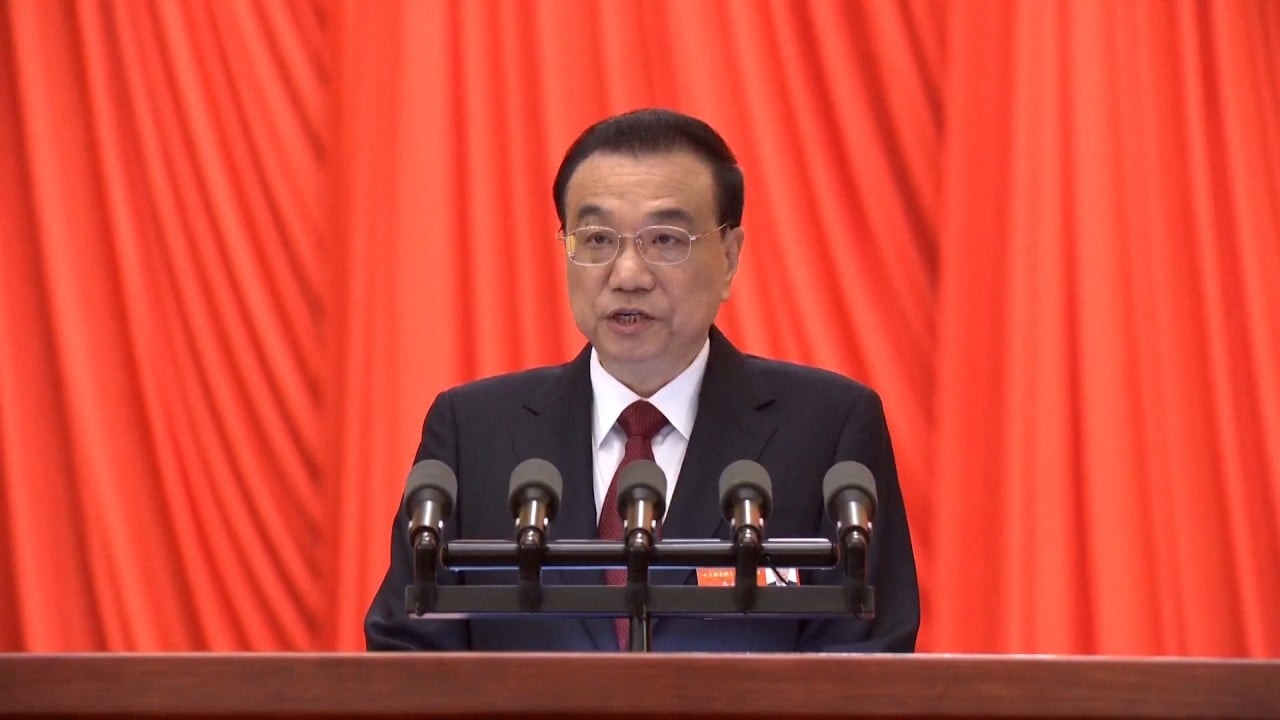
China economy: Politburo vows new tools, refined policies will help address coronavirus-induced turmoil
- China’s economy has been hit hard by waves of the coronavirus, prompting leaders to push for timely tax cuts and other support policies
- Signs suggest that Beijing is keen on loosening its tight grip on internet firms and property developers
The top leadership vowed on Friday to speed up the implementation of existing tax-cut and supportive policies, as well as the use of new monetary policy tools and effective investment, while also refining regulatory policies, according to a statement following a quarterly economic meeting of the 25-member Politburo, the centre of power within the Communist Party headed by President Xi Jinping.
Specifically, the widely watched Politburo meeting said that leadership will actively respond to the concerns and appeals of foreign investors, which have been greatly affected by fresh waves of coronavirus outbreaks that began last month.
The meeting also showed signs that leaders may be keen on loosening their tight controls on internet firms and property developers.
China’s big new infrastructure plan puts national security front and centre
“The pandemic has to be contained, the economy should be stabilised, and the development should ensure security,” the statement following the meeting said.
“We must insist on the policies of preventing both inbound infections and a domestic rebound of cases, and [adhere to] dynamic zero-Covid, doing our best to protect people’s lives and minimise its impact on the national economy and society.”
“Pandemic controls and economic and social development must be efficiently coordinated according to the new transmission characteristics of the [Omicron coronavirus] variant,” it added.
The statement, which was released earlier in the day than is typical following such meetings, boosted investors’ sentiment across the board ahead of the five-day Labour Day holiday.
China’s A-share market jumped in the Friday afternoon session, with the CSI300 index, which tracks the largest listed companies in Shanghai and Shenzhen, closing up 2.4 per cent.
Hong Kong’s stock market also rallied, with Alibaba and Tencent – two internet platforms that have been subjected to government probes in the past year and a half – rising 15.7 per cent and 11.1 per cent, respectively. Alibaba owns the South China Morning Post.
In the offshore market, the yuan last traded at 6.6291 against the US dollar, after weakening to 6.6931 in the morning session.
Externally, the Russia-Ukraine war has driven up global commodities prices, forcing the world’s largest buyers of iron ore, crude oil, soybeans and many other products to pay more, while ongoing tensions with Washington and Brussels blur the outlook for Chinese exports.
“The pandemic and Ukraine crisis have led to increased risks and challenges. Our economic development is becoming more complicated, severe and uncertain. We are facing new challenges in stabilising growth, employment and prices,” the statement said.
Capital flight puts China on alert for ‘spillover effects’ from US rate hikes
Chinese leaders called for enhancing policy support to stabilise the economy and achieve Beijing’s full-year growth target.
“While accelerating the implementation of previously announced policies, including tax and fee cuts and rebates, we must make good use of a variety of monetary policies and look into additional tools,” it said, while also stressing the need to “expand domestic demand”.
And at Friday’s meeting, Chinese authorities also expressed support for the refining of local property policies, particularly for first-time homebuyers.
The statement also mentioned the importance of optimising presales funding regulations – a sign that financing curbs may be loosened – while also calling for the pace of property development to be accelerated.
Still, some analysts questioned what sort of impact the policy adjustments might have.
“We remain deeply concerned about growth, as we believe that Omicron and the ZCS [zero-Covid strategy] are the dominant challenges to growth stability,” said Lu Ting, Nomura’s chief China economist. “Those easing measures, even on a big scale, may not achieve their intended impact due to lockdowns and logistics disruptions.”
“Markets should still focus on the development of the pandemic and the corresponding ZCS. All other policies are of secondary importance,” Lu added.
The National Health Commission reported a total of 15,688 infection cases on Thursday, including 15,032 in the commercial hub of Shanghai.
China to end tech clampdown as economy slows: sources
Ding Shuang, chief Greater China economist at Standard Chartered Bank, said the Politburo statement endorsed recent property loosening measures at local levels, while also fuelling market expectations for additional support tools.
However, “keeping the growth target unchanged could require a marginal adjustment of the zero-Covid policy. Otherwise, supportive policies won’t be able to generate the desired results”, he warned.
The Politburo also said that it will finish the business-recertification process for internet platforms and release “concrete measures” to support their healthy development.
The widespread use of such platforms – including for online shopping and everyday payments – has made them ubiquitous among ordinary Chinese people.
“Such views seem more positive,” Ding said. “It should be one of the bright spots, from both a short- and long-term perspective.”



